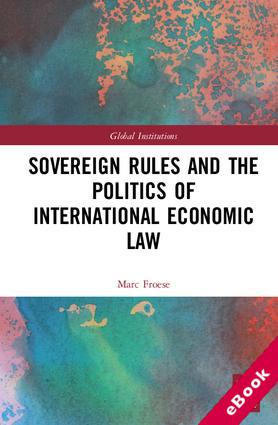
The device(s) you use to access the eBook content must be authorized with an Adobe ID before you download the product otherwise it will fail to register correctly.
For further information see https://www.wildy.com/ebook-formats
Once the order is confirmed an automated e-mail will be sent to you to allow you to download the eBook.
All eBooks are supplied firm sale and cannot be returned. If you believe there is a fault with your eBook then contact us on ebooks@wildy.com and we will help in resolving the issue. This does not affect your statutory rights.
How ought scholars and students to approach the rapidly expanding and highly multidisciplinary study of international economic law? Academics in the field of international political economy used to take for granted that they worked with the overarching concepts of rules and governance, while legal scholars analyzed treaties and doctrines. However, over the past twenty years formerly disparate fields of study have converged in a complex terrain, where academic researchers and governmental policy analysts use a pluralistic set of theoretical and methodological tools to study the ongoing development of international economic law.
This volume argues that the extensive development of international economic law makes it impossible to discuss international political economy and international law as if they were mutually exclusive processes, or even as if they were separate and mutually reinforcing. Rather, we must think of them as a deeply interconnected set of rapidly evolving activities. This is a paradigm shift in which we cease to think about an international system in which politics and law interact, and begin to think about an international system in which politics take place in a legal frame. Froese terms this a shift from politics and law, to the politics of international economic law.
This book does for political economy what others have already done for law – introduces political scientists, economists, and other practitioners of IPE, to the potential of engaging with legal theory and method; it will be of great interest to scholars in a range of areas including IPE, global governance, IR and international law.